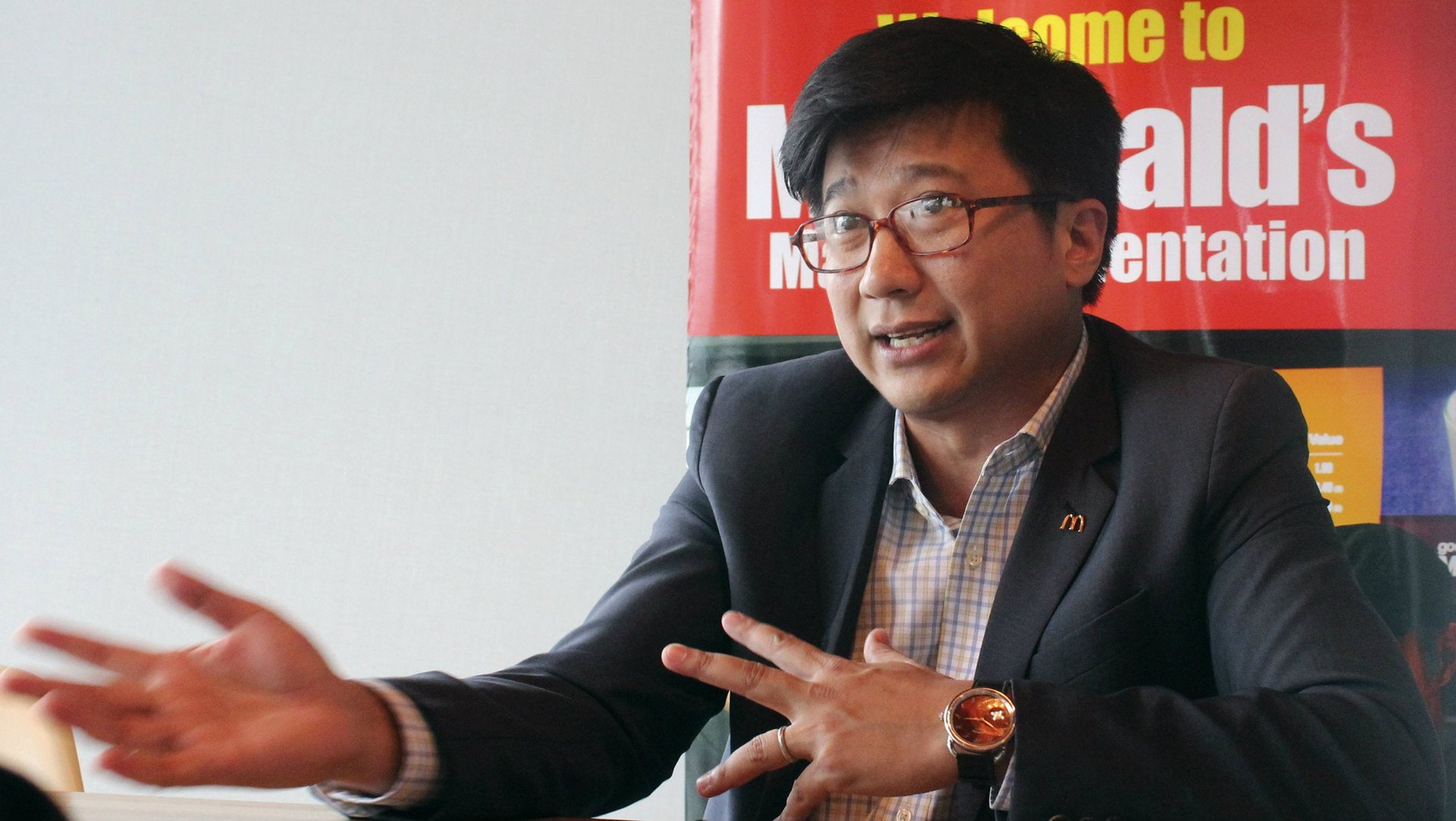McDonald’s partnered with a Vietnamese princeling
When McDonald’s announced plans to enter Vietnam last year, the fast food chain tapped Nguyen Bao Hoang, also known as Henry Nguyen, as its new partner. The head of the Vietnam arm of investment fund IDG Ventures, Nguyen had poured money into technology companies, worked at Goldman Sachs and had even held a job at McDonald’s as a teenager in the US.


When McDonald’s announced plans to enter Vietnam last year, the fast food chain tapped Nguyen Bao Hoang, also known as Henry Nguyen, as its new partner. The head of the Vietnam arm of investment fund IDG Ventures, Nguyen had poured money into technology companies, worked at Goldman Sachs and had even held a job at McDonald’s as a teenager in the US.
Nguyen had another asset, too—he just happens to be married to the daughter of Vietnam’s prime minister. Nguyen is “that ideal business partner who has an impressive business background and proven track record in driving new business ventures in Vietnam,” McDonald’s said in a 2013 press release about the partnership. Vietnam’s first McDonald’s opened this week in Ho Chi Minh City to great fanfare.
Nguyen, who also heads Vietnam’s Pizza Hut franchise business, worked hard for a decade to convince McDonald’s he was the right person for the partnership, he told Reuters last year. A McDonald’s spokeswoman said then, “His marriage did not preclude him for participating in what was a very competitive selection process.”
The company’s entry has been remarkably smooth. In Vietnam, “laws and regulations are often rather vaguely written, giving officials plenty of opportunity to delay or assist an investor’s plans, but Mr. Nguyen has been able to negotiate these difficulties with ease,” Bill Hayton, a former foreign correspondent and author of a book on money and power in Vietnam, told The New York Times.
Partnering up with a well-connected member of one of Vietnam’s most prominent political families has raised remarkably few eyebrows for McDonald’s—especially given the growing scandal in China over investment banks that have done much the same thing. Earlier this week, for example, UBS suspended two bankers over the hiring of Joyce Wei, the daughter of the chairman of Chinese industrial company, Tianhe Chemicals, which is planning a $1 billion IPO in Hong Kong. And Dealbook reported on Tuesday that a senior Chinese regulator successfully asked JP Morgan CEO Jamie Dimon to hire a young job applicant as a “favor.”
The suspension is the latest upset in Asian investment banking after the Securities and Exchange Commission started an investigation into JPMorgan Chase’s hiring practices in China last summer. Since then, several US-listed banks have received inquiries from US regulators asking them about their China hiring practices.
As Quartz has reported earlier, Western banks, hedge funds and private equity groups that do business in China are well-stocked with princelings, as the offspring of China’s elite are known. The practice is not exclusive to China. Gamal Mubarak, the son of former Egyptian prime minister Hosni, worked with Bank of America in London for a year, for example.
Determining which hires could run afoul of the US Foreign Corrupt Practices Act is tricky. A well-connected hire who is the close relative of a powerful person can raise “red flags” for the Department of Justice and the Securities and Exchange Commission if they determine, on a case by case basis, the hire was done specifically to influence that person in power.
Nguyen said this week the opening was a welcome sign of the strength of Vietnam’s growing middle class. “I think in many ways McDonald’s [entering Vietnam] is a symbol of something bigger,” he told reporters. Luckily for him and the fast-food chain, there’s no indication so far that US regulators feel the same way.